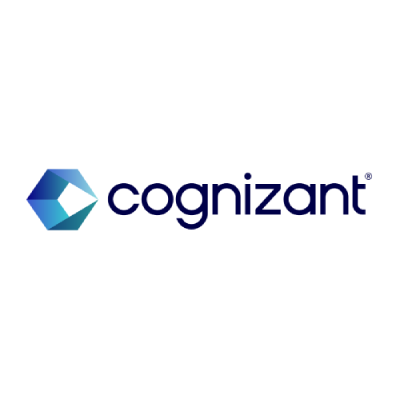The latest CX50 list of the UK’s top 50 customer experience (CX) professionals reveals the key trends in a set of varied and highly competitive sectors.
It’s tempting to believe that great CX should be second nature to brands in today’s economy. But in complex markets with multiple moving parts — many of which are out of an organisation’s control — maintaining CX excellence can never be taken for granted.
In the fourth of five featured sectors in this year’s CX50 list, here we reveal the names of 10 professionals who have stood out from their peers as trendsetters and guardians of great CX at manufacturing, logistics, energy and utilities brands. Below, we’ve also interviewed one of them — DPD’s Tim Jones — to get a sense of the key challenges and CX benchmarks he sees in his field.
Compiled by Marketing Week in partnership with Cognizant and Adobe, the CX50 list celebrates those who are excelling at customer service, digital innovation, data-driven insight and more in a variety of brands across the UK marketplace.
Amy | Belbeck | Chief Marketing Officer | HomeServe |
Jude | Burditt | Director of Customer Solutions | Severn Trent |
Tim | Jones | Director of Marketing, Communications and Sustainability | DPDgroup UK |
Fiona | Nicholls | Head of Service Experience, Business Services | National Grid |
Jon | Paull | Chief Customer and Operating Officer | Octopus Energy |
Nick | Ratcliffe | Customer Experience Director | Volkswagen Group UK |
Claire | Sharp | Customer Director | Northumbrian Water |
Emma | Strain | Customer Director | TfL |
Anita | Yandell-Jones | Chief Customer Officer | Ecotricity |
Peter | Zillig | Director of Marketing | Ford of Europe |
Competing customer needs
The manufacturing, logistics, energy, and utilities sectors tend not to get much recognition for good service or CX. Indeed, it’s their failings that receive most attention — often in excoriating news stories — and that’s not surprising when the stakes for their customers can be so high. What’s more, customers want all brands to emulate the best examples of CX no matter what sector they’re in, notes Cognizant’s Niraj Seth, Vice-President and Head of Manufacturing, Logistics, Energy, and Utilities.
“In a landscape where technologies including generative AI are rapidly reshaping expectations, consumers demand predictive and personalised customer service from the companies they interact with,” he says. “Organisations in the manufacturing, logistics, transport, energy and utilities sectors need to be aware of this expectation shift and how it applies to their business to invest accordingly, or risk being left behind.”
For logistics companies, for example, failing to deliver is a quite literal risk. This makes it all the more impressive when companies and CX professionals aren’t just upholding standards but setting the tone for the rest of the industry. However, brands aiming to do so must not only meet high customer service expectations but also remain competitive in a complex marketplace.
Tim Jones, Director of Marketing, Communications and Sustainability at DPDgroup UK, explains the sometimes-conflicting stakeholder relationships a delivery brand has to manage, to become the logistics provider of choice in a crowded and highly price-sensitive field.
“We have two sets of customers to keep happy. We have the online shopper and the paying customer whose goods we’re picking up to ship. That’s two sets of customers with very different requirements.”
Those requirements can be almost polar opposites. Jones notes that the dispatcher of a parcel usually wants minimal contact with the delivery partner, even though it is the party paying for the service. The retailer just wants a seamless experience where the package is “collected on time, delivered on time, no issues”.
“We have two sets of customers to keep happy. We have the online shopper and the paying customer whose goods we’re picking up to ship." Tim Jones, DPD
Meanwhile, the recipient, despite not having paid the delivery provider directly, wants constant contact to confirm that their package will arrive on time, that it will be delivered safely, that they won’t have to wait in all day to accept it, and that there’s accountability if something goes wrong.
“Our philosophy is that we have one group of paying customers but another group that we see as customers too, because they’re our customer’s customer. We want to make sure that it’s really a world-class experience,” Jones insists.
And while the retail partner may not need the attentive service expected by the consumer, there is still an opportunity to deliver value in the relationship. “They want to know that we’re investing to grow our network and our fleet. That we’re able to service them at key times — not just Christmas but throughout the year. Mother’s Day and Valentine’s Day, for example,” Jones says.
A partner in experience excellence
Being seen as a business partner for retailers is crucial, because of how integral the delivery experience is becoming in overall customer satisfaction in ecommerce. One survey showed that while customers look at free shipping (82%) and speed of delivery (68%) as key factors in choosing an online retailer, 30% of customers also value reviews about shipping experiences.
“Part of our appeal to our B2B customers is that they know their customers won’t be calling their contact centre about missing parcels,” Jones reveals. “Research also tells us that a great delivery experience is a key driver of repeat orders. Minimise costly contact plus revenue generation — that’s a double win if you get it right.”
Naturally, where there’s a will to deliver great CX, there must also be a way. Jones contends that “in the past, we’ve said that we’re almost a technology company that happens to deliver parcels”.
Technology, he adds, has always been fundamental for DPD. The ability to offer real-time delivery updates, schedule deliveries so the drivers are always kept on track and on time, and feed data back to B2B customers on the effectiveness of their shipping is indispensable. And this requires no small amount of expertise.
“Technologies including generative AI are rapidly reshaping expectations.” Niraj Seth, Cognizant
Jones notes that it’s vital these capabilities are embedded into operations and interlinked holistically. There are, he says, companies that try to ‘ape’ DPD’s delivery model but fall down at the first hurdle because there simply isn’t the back-office capability to achieve it.
“Customer-centricity is cultural. One of the ways to deliver that is through cross-functional technology. A system that allows us visibility at multiple points not just for operations but also for sales, CRM, call-centre staff, back office, and anyone else who needs that information. It’s all in one place, designed to do one thing, which is collect and deliver parcels to the right place, at the right time, every time.”
Perpetual forward motion
Jones is at pains to point out that technology, though critical, is just an enabler. It’s a tool that means internal teams aren’t frustrated when it comes to delivering the experience the customer wants.
There must also be constant awareness that a brand can’t afford to rest on its laurels, Jones says. “There are four strategic pillars in DPD: the best service, delivered through the best technology, with the most customer-centric workforce and doing it all sustainably.”
Jones sees the last pillar as being integral to how DPD moves its CX forward. The company currently delivers to 30 major UK towns and cities using all-electric vehicles, designed to reduce emissions in urban areas. This ‘Green Fleet’ will deliver 100 million parcels by the end of this year, but this is not the end of the journey.
“Innovation is just continually challenging yourself to say, ‘I did pretty well there, but what else could we do to make it better?’” Jones says. “We’ve always got to do more if we’re going to find the next big thing and that’s right at the core of what customer experience means to us.”
Methodology
The Marketing Week CX50, in partnership with Cognizant and Adobe, is the pre-eminent annual list of the UK’s top 50 CX professionals, now in its sixth year. For 2024, we have taken a new sector-driven approach to compiling the CX50 list, in an effort to better represent the diverse range of customer experiences and priorities present across the economy — particularly increasing its coverage of B2B organisations and the public sector compared to previous years. The CX50 2024 is divided into the following five sectors, each featuring 10 professionals:
- Retail, consumer goods, travel and hospitality
- Financial services
- Public sector
- Manufacturing, logistics, energy and utilities
- Life sciences
Our criteria and methodology for determining the CX50’s members remain the same as in previous years. In order to create a pool of candidates, we combine nominations from Marketing Week and Cognizant’s professional networks with independent measures of brands that perform highly on CX. To select the final list, we then assess individuals’ achievements in the past year and over the course of their careers against the three criteria of impact, innovation and influence.
The CX50 members possess an eclectic set of skills and responsibilities, all crucial in the effort to deliver exceptional customer experience, so while we have not split the CX50 2024 into the five categories we have used previously, these nevertheless remain relevant as descriptions of who the CX50 are and what they embody, namely: organisational leaders, brand guardians, technologists, disruptors/challengers, and growth drivers.
Discover more on CX50 here.
















